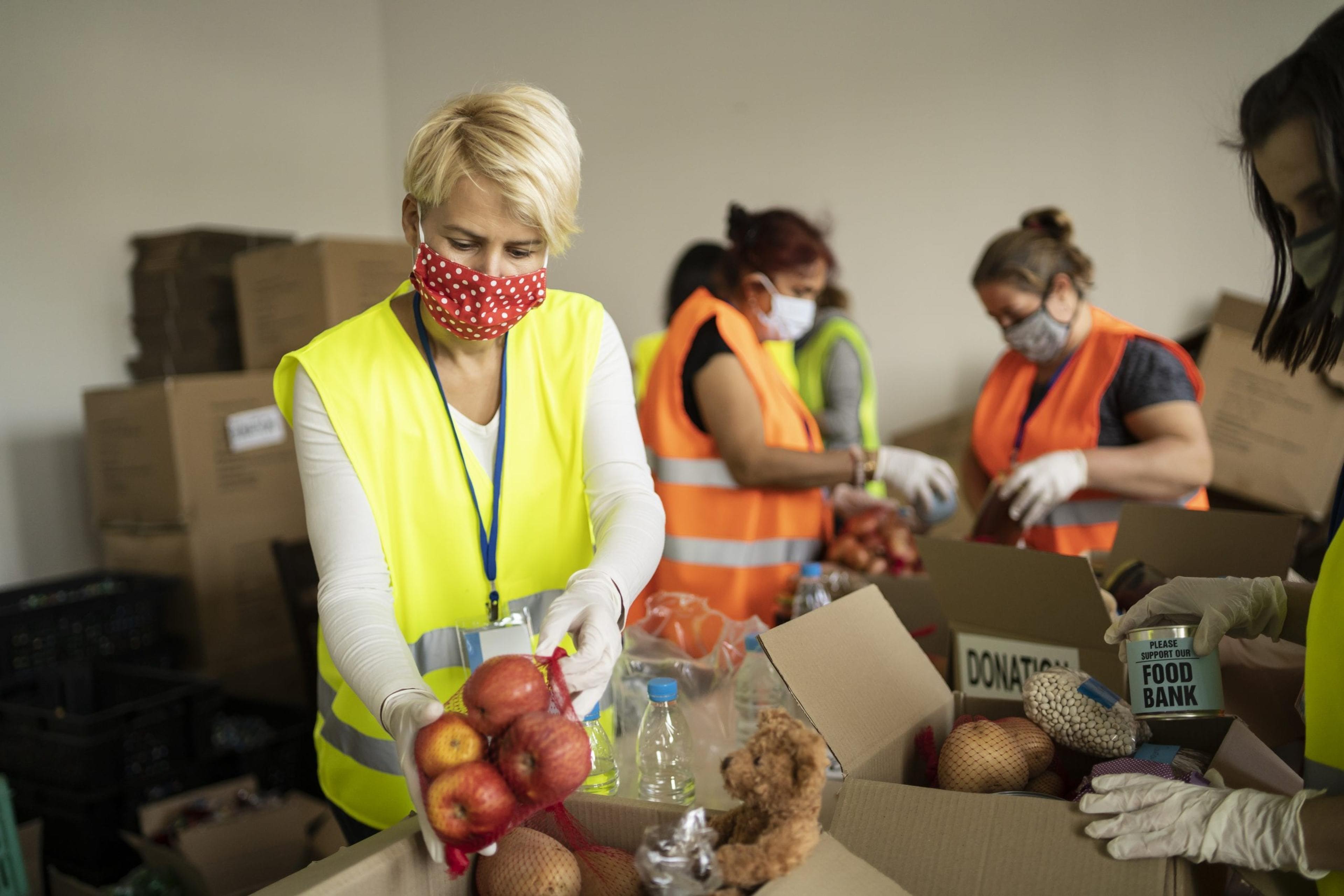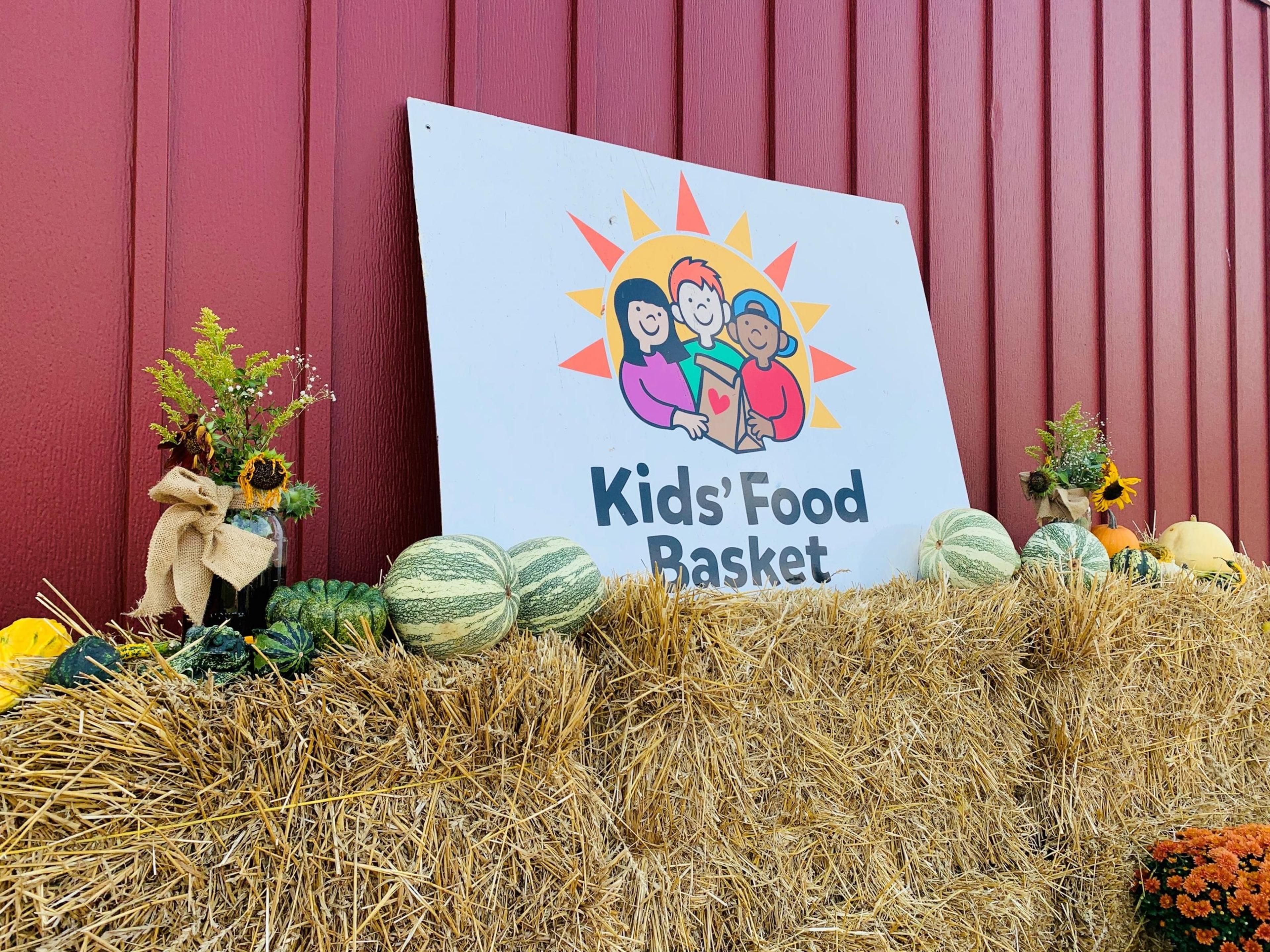How Blue Cross Blue Shield of Michigan is Helping Michiganders Facing Food Insecurity
Julie Bitely
| 5 min read

Food insecurity has grown during the COVID-19 pandemic but has long been a concern for many Michigan families. Prior to the pandemic, about 13.6% of Michiganders were considered food insecure. Feeding America estimates that percentage will rise to 19.1% during the pandemic. Blue Cross Blue Shield of Michigan mobilized quickly to provide $500,000 in financial support to community-based organizations such as United Way of Southeastern Michigan, the Father Fred Foundation, Food Bank of Eastern Michigan, Greater Lansing Area Food Bank, Kids’ Food Basket and Superior Health Foundation. The funding helped provide meals to vulnerable children, seniors and other populations in need at a critical time. Blue Cross has been a longtime supporter and partner to organizations fighting food insecurity in communities across Michigan. Here’s a look at some of the ways we’ve worked to make Michigan a more food-secure state over the years in times of crisis and through persistent devotion to the cause.
Employee generosity
Our employees step up when donations and volunteer hours are needed. Through annual holiday food drives, employees generously donate to ensure families in their communities have food through the winter months. This year, a virtual fundraising campaign will raise money for Gleaners Community Food Bank of Southeastern Michigan, Greater Lansing Area Food Bank, Eastern Michigan Food Bank, the Salvation Army serving west and northern Michigan, and Superior Health Foundation. A cereal drive in partnership with Battle Creek-based Kellogg’s helps fill a breakfast gap for kids in the summers, benefiting organizations such as the Salvation Army in Marquette, the YMCA of Lansing and Gleaners. Additionally, volunteer opportunities allow employees to give back at local food pantries, such as United Church Outreach Ministry in West Michigan and the Father Fred Foundation in Traverse City.
Targeted nutrition support
Whether it’s a community in need or a targeted effort to increase access to fresh, nutritious foods, Blue Cross has shown up to support Michigan cities and schools. For example, through a partnership with United Fresh Start Foundation, we’ve helped nearly 100 schools secure salad bars, found to be one of the most effective school-based intervention strategies to increase students’ fruit and vegetable consumption. Since Flint’s water crisis began in 2016, we’ve partnered with the Food Bank of Eastern Michigan to staff hundreds of volunteer shifts during food and water distributions as a way to get nutritious foods to Flint families. Financial support also helped fund a mobile market to increase access to healthy food for Flint residents, as well as wraparound education and health services. Earlier this year, we supported the community of Midland after devastating floods to ensure residents had access to food and other health necessities.
Enabling community innovation
At Blue Cross, we understand that the best solutions to health challenges such as food insecurity are born out of organizations doing the work in their communities. Along with Blue Cross Complete of Michigan, we supported Gleaners Community Food Bank in southeast Michigan with a donation earlier this year to help the organization secure two mobile, refrigerated fresh food transport vans to increase access to healthy food in a 5-county area. The refrigerated vans allow Gleaners to supply dairy items and fresh produce to more locations in need. Additionally, the Blue Cross Blue Shield of Michigan Foundation has supported innovative prescription produce programs that help Michiganders with lower incomes access fresh fruits and vegetables at local farmers markets through a “prescription” from their doctor in many areas of the state.
Impact beyond hunger: Spotlight on Kids’ Food Basket

In West Michigan, we supported expanded nutritional programming at Grand Rapids-based Kids’ Food Basket. The organization works with schools to provide healthy sack suppers to students. The volunteer-decorated paper bags are packed with shelf-stable items along with seasonal, kid-approved snacks like fresh green beans harvested from the organization’s 14-acre farm in northeast Grand Rapids. The meals are distributed to children at 70 sites in Kent, Ottawa, Allegan and Muskegon counties. When children receive the sack suppers, Kids’ Food Basket has found that absenteeism related to sickness goes down, standardized test scores go up and end-of-day suspensions go down. One Muskegon-area school saw an 86% drop in suspensions their first year, which president and CEO Bridget Clark Whitney attributes to kids no longer stressing about what they were going to eat that night. “They knew that this meal was going to show up consistently,” she said. Research shows that students who are suspended are more likely to drop out of school entirely, jeopardizing graduation and future job prospects. So not only are sack suppers helping kids access nutritious foods, they could be changing the trajectory of a young person’s life, freeing them up to focus on school and not hunger. --- We will continue to support efforts that work to address food insecurity, a serious public health concern that leads to reduced health outcomes and increased health care spending. Editor's Note: This is one story in part of a year-long blog series. Blue Cross Blue Shield of Michigan journalists will be diving into some of the environmental and socio-economic reasons behind disparate health outcomes for certain groups of people. While there is no one answer or simple solution to resolving these complex issues, we’ll talk to community organizations working to address social determinants of health in neighborhoods and communities across Michigan, as well as highlight work that Blue Cross is doing to contribute to solutions for the health of all Michiganders. Related:
- Understanding Food Insecurity
- Food Insecurity Increasing Due to COVID-19
- Understanding Social Determinants of Health in Michigan
Main image photo credit: Vladimir Vladimirov; Kids' Food Basket image photo credit: Julie Bitely





